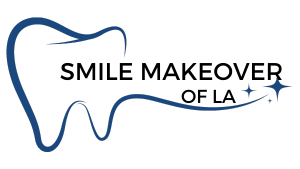
Woke up with a headache? Are you experiencing tight jaw muscles? These are just some of the indications of you might be grinding or clenching your teeth. This is also referred to as bruxism by dentists.
Our teeth help us eat, talk, and most importantly, to smile with confidence. They aren’t however, designed to be powerfully grated against each other, or clasped for too long. That said, it’s regular if you grind or clench your teeth from time to time. Many of us do it without even being aware, particularly in our sleep.
To put it in simple words, when it becomes a habitual incident on an every-night basis, it can lead to continual headaches, jaw pain, muscle hardness, and potentially more severe damage to your teeth and jaw.
This article intends to prop up alertness about the general health surrounding teeth clenching. It is not planned to be an alternate for professional advice, analysis, or healing. You should always contact your dentist with any questions you have. Don’t hesitate to get in touch with your dentist if you’re experiencing some form of bruxism.
The clenching or grinding of the teeth also termed bruxism can be a practice or the start of the reflex chewing activity. As per modern statistics, about one in four dental patients undergo some type of bruxism. The intensity may vary. However, if you realize you have a grinding or clenching habit you should not ignore it. A range of dental and muscle effects may appear without the right action.
Some of the most prominent dental effects are tense muscles, teeth sensitivity, headaches, jaw imbalances, jaw pain, and stress fractures in the teeth. Furthermore, muscle effects include all types of headaches from temporomandibular joint pain (TMJ), migraine to tension-type to sinus to allergy, tinnitus, and pericranial tenderness. In general, grinding your teeth stresses out your muscles at night and can be the cause of discomfort.
Why Do People Grind Their Teeth?
Even though teeth grinding could be the outcome of stress and anxiety, it frequently occurs during sleep because of abnormal bites or missing or crooked teeth. Sleep disorders such as sleep apnea could be the cause as well.
How Do I Find Out if I Grind My Teeth?
Well, grinding often happens during sleep. Most people are even uninformed that they grind their teeth. Nevertheless, a dull, continuous headache or sore jaw when you wake up is an informer of bruxism. Time and again people discover that they grind their teeth by their dear one who hears the grinding sound at night.
If you guess you may be grinding your teeth, consult your Glendale Dentist. They can inspect your mouth and jaw for indications of bruxism, such as jaw softness and too much wear on your teeth.
Signs You are Grinding Your Teeth

- If you get up with a headache, facial muscle soreness, tooth pain, jaw pain, or discomfort, you’re clenching your teeth in your sleep.
- Your back teeth look compressed or appear as if they have small ‘potholes’ on them.
- Experience tooth pain or sensitivity when eating cold and hot foods or drinks
- Earaches become a habitual incident
- Problems in opening your jaw wide
- Hear a clicking sound coming from your jaw when you’re trying to eat
- Chipped, cracked teeth, or fractured teeth
Why Smile Makeover of LA for Glendale Grinding Teeth?
If you’re experiencing any of the symptoms mentioned above, we highly recommend booking an appointment with Dr. Sahakyan, your Dentist in Glendale. Our dentist will be able to assess your teeth and suggest a solution that suits your individual needs.
